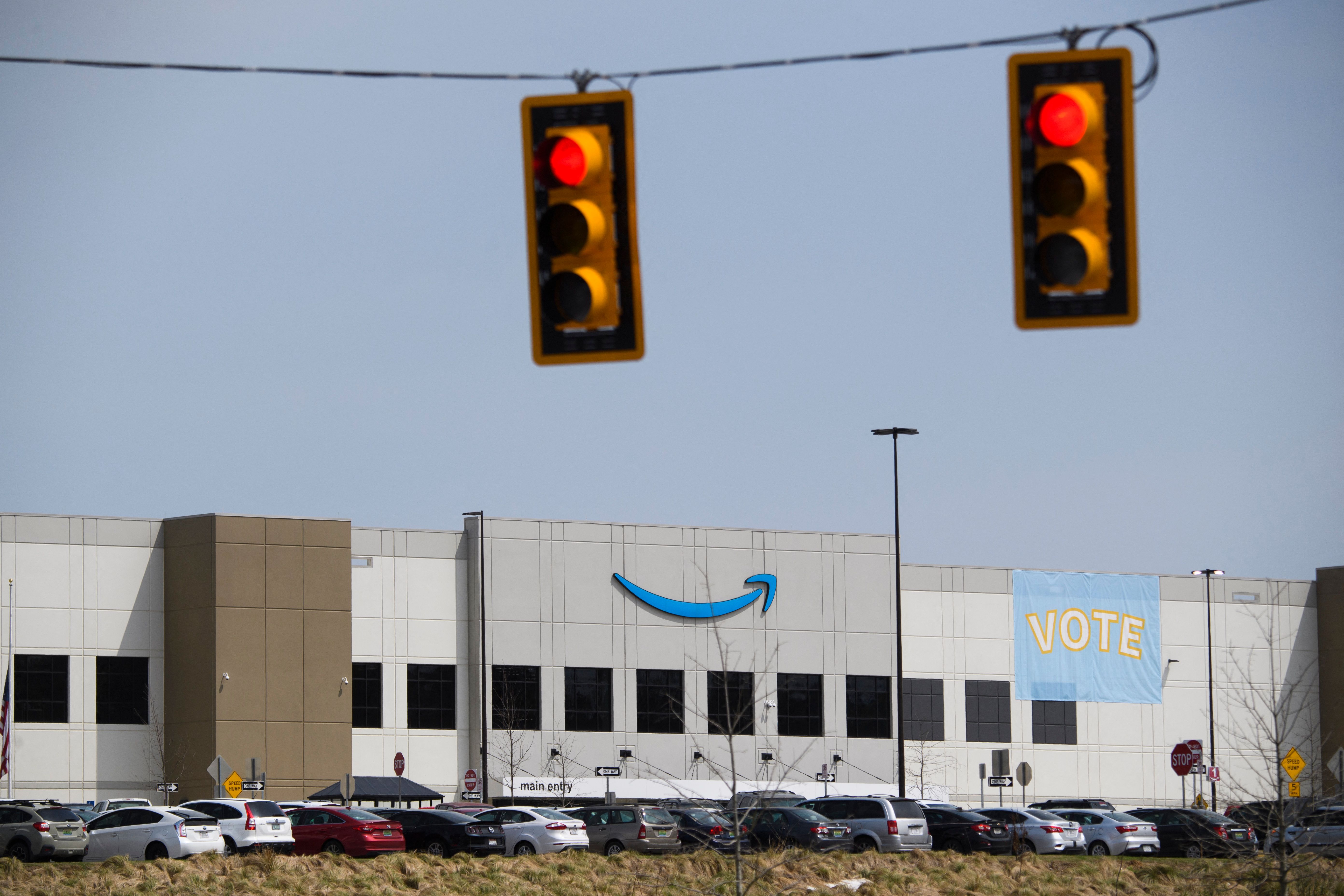The failed Amazon union drive
How Amazon workers in Alabama wound up rejecting the formation of a union

A free daily email with the biggest news stories of the day – and the best features from TheWeek.com
You are now subscribed
Your newsletter sign-up was successful
The smartest insight and analysis, from all perspectives, rounded up from around the web:
Amazon's first serious union challenge in years wasn't even close, said Matt Day at Bloomberg. After months of buildup, the workers at an Amazon plant in Bessemer, Alabama, rejected the formation of a union, with a lopsided count of 1,798 "no" votes to only 738 votes in support. The Retail, Wholesale and Department Store Union, which organized the vote, plans to appeal after accusing Amazon of "election violations, including the installation of a mailbox outside the facility" so that managers could "watch employees submitting their ballots." The defeat deals a demoralizing blow to labor activists. The vote "attracted national attention," with backing from President Biden and a personal visit from Sen. Bernie Sanders (I-Vt.), but workers said they weren't surprised by the outcome. "It's really not bad at Amazon," said one employee, who earned less money and received no benefits at his previous job at Walmart. A pro-union worker explained, "You can't tell these kids around here anything — $15 an hour is the most they have ever made."
That pay might sound good for Bessemer, said David Leonhardt at The New York Times, but it comes out to $31,000 a year, "less than half of U.S. median family income and low enough in many cases for a family to qualify for subsidized school lunches." Amazon jobs don't offer the upward mobility that factory jobs in Bessemer and elsewhere once did. Steel-industry jobs once paid the equivalent of $52 an hour. They were dangerous, but Amazon's warehouse jobs also carry risks of injury, as well as new risks, such as the isolation that comes from "interacting mostly with robots." These are not jobs that "help the country again build a growing, thriving middle class." This was never a fair fight, said Tyler Sonnemaker at Business Insider. Amazon "enlisted 'union avoidance' consultants" and peddled "anti-union messaging through websites, T-shirts, text messaging, and midnight 'education' meetings." But labor laws have been "chipped away" so much that unions have little recourse against such tactics.
The Week
Escape your echo chamber. Get the facts behind the news, plus analysis from multiple perspectives.

Sign up for The Week's Free Newsletters
From our morning news briefing to a weekly Good News Newsletter, get the best of The Week delivered directly to your inbox.
From our morning news briefing to a weekly Good News Newsletter, get the best of The Week delivered directly to your inbox.
Union leaders would have you believe they are "saving an exploited workforce from Jeff Bezos' sweatshops," said Kevin Williamson at the National Review. Please. Among dozens of similar labor-affiliated cases last year, not one but two former presidents of the United Auto Workers union were convicted of embezzlement. No need to wonder why Amazon workers weren't excited about "the union's proposal to dip into their pockets."
Amazon's size and dominance make it "an enticing target," said Megan McArdle at The Washington Post. But it's not the bogeyman critics make it out to be. Retail remains a fiercely competitive industry, with Walmart and others vying for the same customers, and Amazon can't easily raise prices to compensate for substantially higher labor costs. The union's defeat is a message to progressives, said Will Marshall at The Hill: Hostility to business won't win over working-class voters. Bessemer is one of the poorest cities in Alabama, and the people in Alabama saw Amazon "doing exactly what you'd expect good businesses to do — create new jobs with decent pay and benefits in places that badly need them." The Left needs to get beyond "nostalgic class-warfare tropes to the realities of the local economy."
This article was first published in the latest issue of The Week magazine. If you want to read more like it, you can try six risk-free issues of the magazine here.
A free daily email with the biggest news stories of the day – and the best features from TheWeek.com
-
 Political cartoons for February 16
Political cartoons for February 16Cartoons Monday’s political cartoons include President's Day, a valentine from the Epstein files, and more
-
 Regent Hong Kong: a tranquil haven with a prime waterfront spot
Regent Hong Kong: a tranquil haven with a prime waterfront spotThe Week Recommends The trendy hotel recently underwent an extensive two-year revamp
-
 The problem with diagnosing profound autism
The problem with diagnosing profound autismThe Explainer Experts are reconsidering the idea of autism as a spectrum, which could impact diagnoses and policy making for the condition